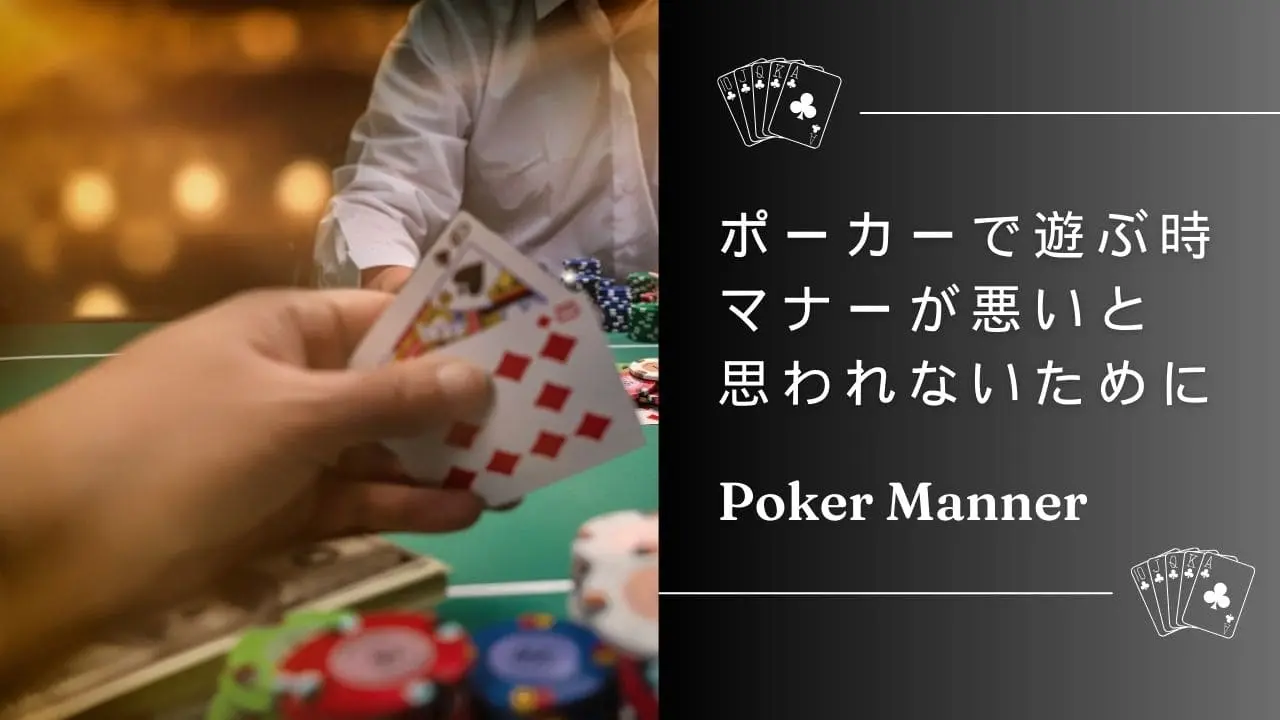Poker is not just a game of skill and psychology; etiquette and sportsmanship play a crucial role in ensuring a smooth and enjoyable experience for all players. No matter how skilled you are, poor manners can lead to a negative reputation and create an unpleasant playing environment.
This article highlights some of the most common bad etiquette practices in poker and provides actionable advice on how to avoid them. Whether you’re a beginner or an intermediate player, following these guidelines will help you foster a positive and fair atmosphere at the table.
Actions Considered Bad Etiquette in Poker
1. Excessive Tanking (Unnecessary Delay)
Why is it a problem? Taking too much time to act (known as “tanking”) can frustrate other players and disrupt the game flow. In online poker, excessive tanking can significantly slow down the pace of play.
Examples:
- Repeatedly checking bet sizes for an extended time.
- Taking too long to fold weak hands that should be an easy decision.
How to avoid it: Try to make decisions within 30 seconds. If you have a weak hand and plan to fold, do so promptly to maintain a steady game pace.
2. Handling Chips and Cards Carelessly
Why is it a problem? Roughly handling cards or throwing chips onto the table can be distracting and show a lack of respect for the game and other players.
Examples:
- Tossing cards aggressively when folding.
- Slamming chips onto the table when making a bet.
How to avoid it: Always place your chips and cards on the table calmly and with care. Sliding your chips forward smoothly is the preferred method.
3. Insulting or Taunting Other Players
Why is it a problem? Disrespecting other players ruins the friendly and competitive nature of poker. In extreme cases, it could even lead to disqualification.
Examples:
- Saying things like “You’re terrible at this game.”
- Laughing excessively at another player’s loss.
How to avoid it: Always show respect to your opponents, regardless of the outcome of a hand. Keep your emotions in check and maintain a friendly demeanor.
4. Slow Rolling (Deliberate Delay in Showing a Winning Hand)
Why is it a problem? Purposely delaying the reveal of a strong hand at showdown is considered disrespectful and creates unnecessary tension.
How to avoid it: When it’s time to reveal your cards, do so immediately and avoid unnecessary suspense.
5. Distracting Behavior
Why is it a problem? Excessive chatting, using a smartphone frequently, or failing to pay attention can disrupt the game and show a lack of consideration for other players.
How to avoid it: Stay focused on the game and limit non-essential conversations.
Essential Poker Etiquette for Beginners
Respect Turn Order
In poker, acting out of turn can provide unfair information to others and disrupt the natural flow of the game.
Why is it important? Premature actions, such as announcing a fold too early, can influence other players’ decisions and create an unfair advantage.
Tip: Wait for your turn and always be aware of when it’s your time to act.
Keep Your Chip Stack Organized
In live poker, keeping your chip stack neat helps others gauge stack sizes and promotes a smoother game.
Why is it important? Messy chip stacks can confuse opponents and slow down play.
Tip: Stack chips in clear, easy-to-read denominations to make the game more efficient for everyone.
Show Gratitude to the Dealer
Poker games are facilitated by dealers who manage the action and enforce rules. Showing appreciation improves the atmosphere at the table.
Why is it important? Dealers play a crucial role in keeping the game fair and running smoothly.
Tip: A simple “Thank you” at the end of a session goes a long way in maintaining a positive environment.
Online Poker Etiquette
Online poker comes with unique etiquette considerations beyond those of live games.
Be Mindful of Chat Behavior
Poker chat is meant for friendly interaction, not insults or taunting.
What to avoid:
- Saying “You got lucky” or “You don’t deserve that win.”
- Engaging in excessive trash talk.
Tip: Stick to positive phrases like “Nice hand!” or “Good game!” to foster a friendly environment.
Ensure a Stable Internet Connection
Poor connectivity can cause disruptions, delaying the game for others.
Tip: Use a reliable internet connection and close unnecessary applications that might slow down your gameplay.
Use the Time Bank Responsibly
Online poker platforms provide extra decision-making time, known as a “time bank.” However, abusing it can frustrate other players.
What to avoid:
- Intentionally letting the time bank run out on every action.
Tip: Use the time bank only for difficult decisions, not as a stalling tactic.
How to Handle Players with Bad Etiquette
Encountering poor behavior at the poker table is inevitable, but handling it wisely can make a difference.
Stay Calm and Composed
Reacting emotionally to a rude player can escalate the situation.
Good approach:
- Ignore disrespectful behavior and stay focused on your strategy.
Bad approach:
- Retaliating with insults or negative comments.
Report Issues to the Dealer or Support Team
In live poker:
- Notify the dealer if a player is repeatedly violating etiquette.
In online poker:
- Most platforms allow you to report abusive players.
Focus on Your Game
Letting an opponent’s bad manners distract you can negatively impact your performance. Instead, keep your attention on making the best possible decisions.
Summary
Poker is a game of skill, strategy, and social interaction. By following proper etiquette, you create a positive experience for yourself and others at the table. Whether playing live or online, maintaining good manners will earn you respect and contribute to a more enjoyable poker community.
By practicing these etiquette rules, you not only improve your poker experience but also enhance your overall reputation as a respectful and fair player.


